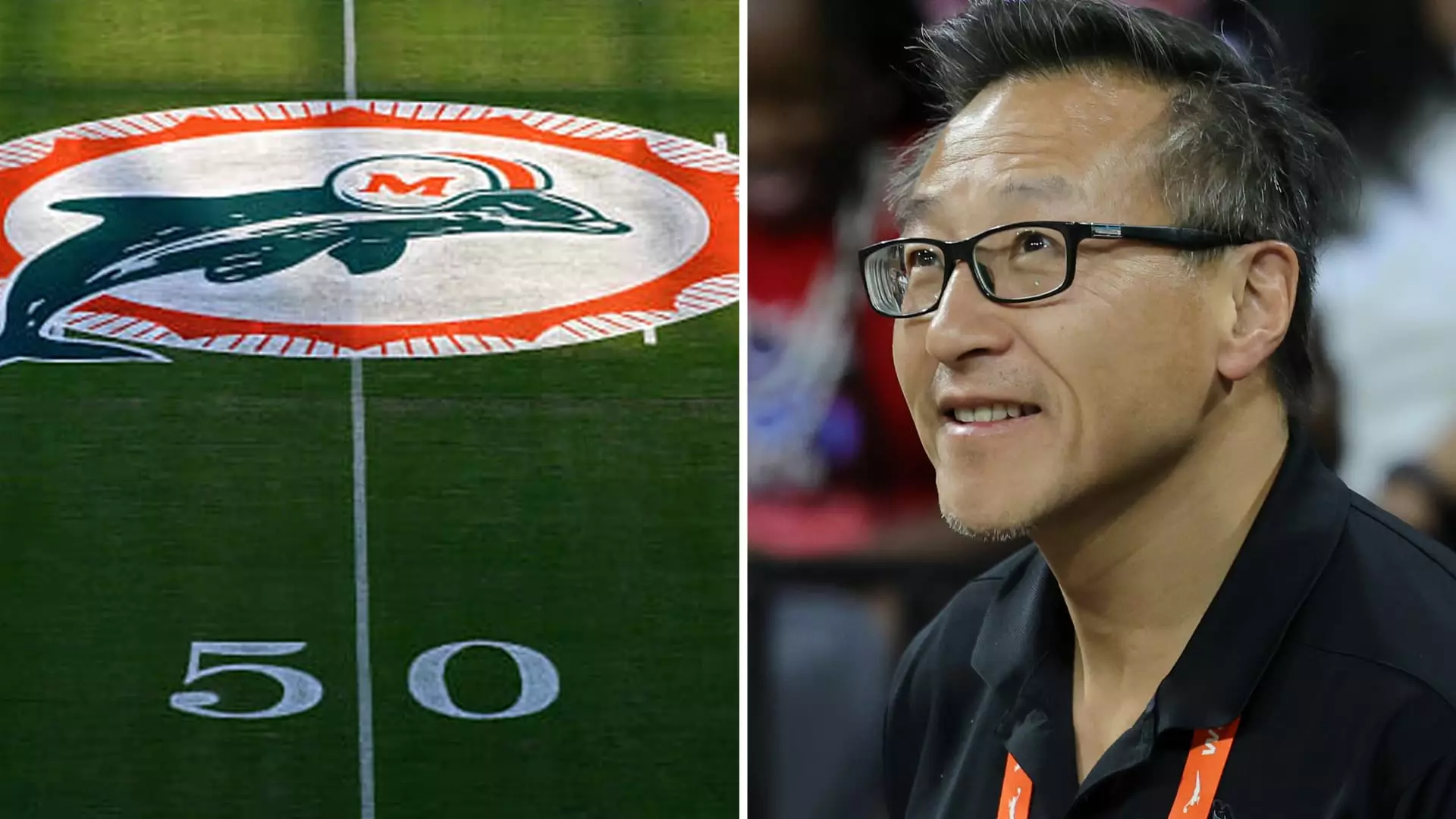Recent developments in the NFL illustrate a significant shift in how team ownership is evolving, particularly through the proposed sale of a minority stake in the Miami Dolphins. The Dolphins are in negotiations with Ares Management and billionaire Joe Tsai, which reflects a broader trend among sports franchise owners seeking to diversify their portfolios. This interest in pooled resources and shared investment comes in light of increasing franchise valuations and a burgeoning demand for financial growth opportunities within the sports sector.
The valuation of the Dolphins and their associated assets—including Hard Rock Stadium, the Miami Grand Prix F1 race, and around 50% of the Miami Open—stands at $8.1 billion. This premium underscores not only the financial magnetism of professional sports but also indicates the potential pathways forward for team owners looking to navigate the complexities of financial management within the evolving marketplace of sports investment.
The Value Proposition of Private Equity Investments
The inclusion of private equity firms in NFL franchise ownership marks a notable shift—this would be the first instance since new finance rules were enacted in August. Given the competitive and often volatile landscape of sports franchises, private equity investment offers a viable route for teams hoping to gain financial stability and leverage the advantages of expert management. Ares Management, recognized for managing significant assets worth over $450 billion, represents both a robust investment and an opportunity for the Dolphins to secure a more sustainable financial future.
The negotiation parameters reveal that Ares would acquire a 10% stake in the Dolphins while Tsai, whose sports ownership platform already spans multiple franchises including the Brooklyn Nets and New York Liberty, looks to secure a 3% stake. These deals signify an important intersection between sports, finance, and management, illustrating how ownership dynamics are evolving in the face of escalating franchise valuations and competitive market conditions.
In terms of revenue, the Dolphins generated $673 million in 2023 alone, reflecting the growing fiscal vitality of professional sports. Current owner Stephen Ross, who bought the team for $1.1 billion in 2009, has expressed intentions to utilize the funds from this minority stake sale to bolster his investments in South Florida real estate and further entrench himself in the sports industry. Ross’s existing portfolio is already multifaceted, consisting of his role as CEO of Related Companies and his ownership of Hard Rock Stadium, enabling him to capitalize on various revenue streams from events held within the venue.
This financial diversification is not merely opportunistic; it signals a conscious strategy among team owners to shield themselves from the full brunt of market fluctuations that can threaten franchise profitability. By retaining a portion of ownership alongside investors, owners can maintain their influence while also bringing in additional funds that can help fortify their financial position in the long term.
The NFL’s decision to warm up to private equity involvement reveals a strategic pivot designed to adapt to the marketplace’s rapid evolution. By enabling select private equity firms to acquire stakes in franchises, the league acknowledges the increasing importance of attracting diverse financial backgrounds to sustain a competitive environment across all teams.
The NFL was notably the last major professional sports league to embrace private equity, which suggests a strong desire to remain relevant in an ever-competitive landscape. With rising franchise valuations making outright purchase a daunting prospect for many prospective buyers, opening the door to minority investments could serve as a lifeline, allowing teams to boost their financial backing while still preserving family interest control.
The ongoing negotiations surrounding the Miami Dolphins epitomize a broader transformation in the sports industry, where financial partnership and strategic investment play crucial roles in shaping the future of franchise ownership. As private equity firms step into the arena, they bring with them not only capital but also a fresh perspective on financial management in sports. Observing the outcomes of these negotiations will provide invaluable insights into how such investments reshape the very fabric of team ownership in the NFL and beyond.


Leave a Reply